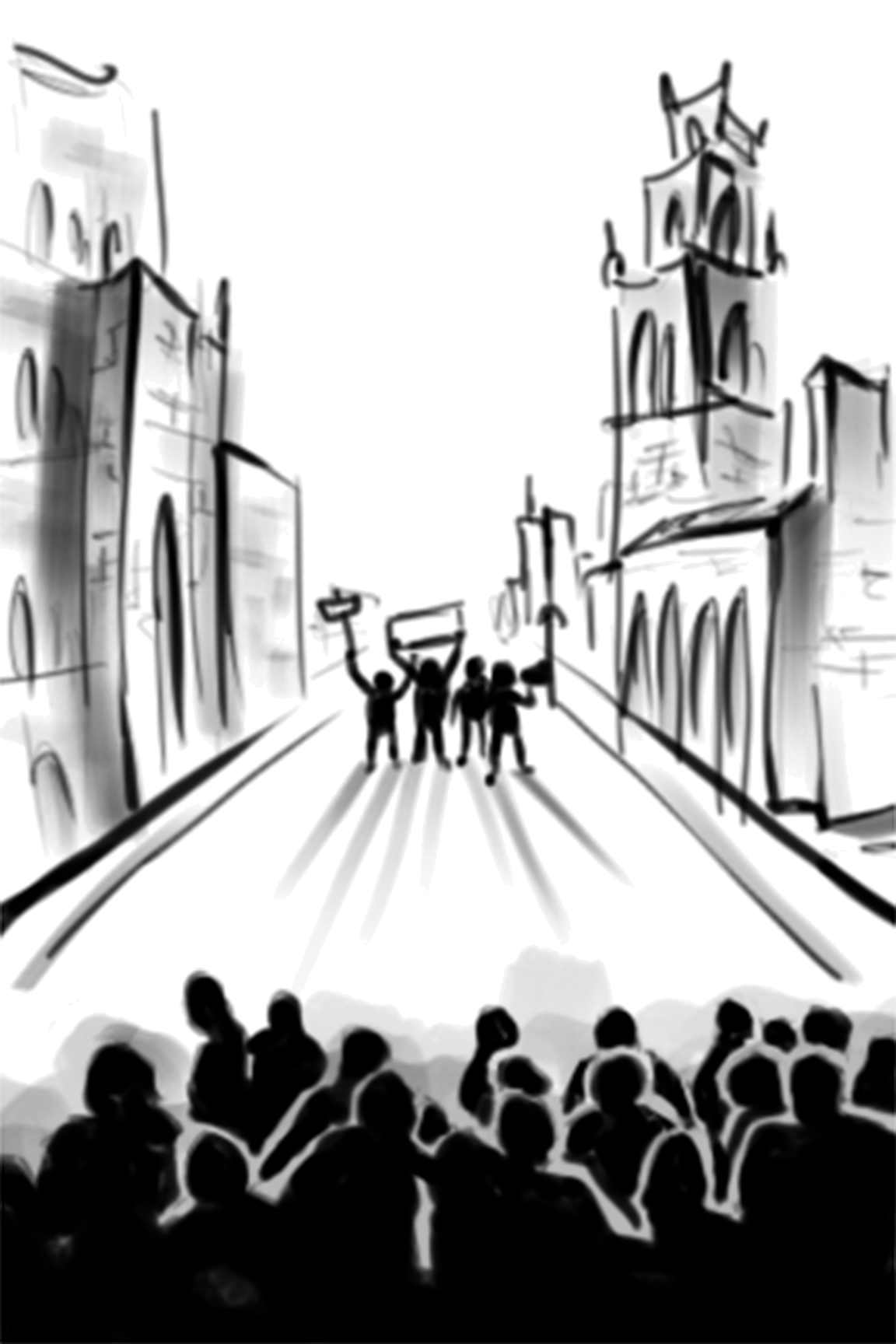
Kelly Zhou
When the March for Our Lives movement began a little over a year ago, it seemed revolutionary. A time when tragedy was fueled into mass youth empowerment and national change. However, running my local march as a senior in high school didn’t feel like a personal beginning. It felt like the end. A final try to make my town feel like it mattered before leaving.
Throughout high school, running rallies, protests and speeches was regular for me. I ran different activist groups because I was passionate about their causes, but I was mainly passionate about the people around me. I desperately wanted to get people from my poor tiny town of 20,000 in a tiny county in tiny northern California to feel something. To be doing something positive in a place most people never leave.
Coming to Yale I knew I wanted to continue taking part in activism-based groups. I imagined I would join a superpower of young adults. Although Yale isn’t known for being the face of student autonomy, liberation and social change, I was finally going to a place that easily could be that. It was no longer about changing my community, but about entering that outer world we were thinking about.
Within my first weeks at Yale I joined a few different justice groups (which I still intend to be a part of and love dearly). The meetings were honestly smaller in size than I expected, but had very similar sentiments to the activist-related meetings I was in back at home. All these people were obviously there because they wanted to change something, and these were obviously people who had been working for a long time together as democratically and lovingly as they knew how.
I was comforted and motivated knowing that there were passionate groups at Yale. Yet, at the same time it reminded me of parts of activism I somehow thought would no longer be challenges. Meetings gave me flashbacks to spending hundreds of hours with a few core people for events with hundreds of people. It seemed that even at a place like Yale, I was yearning for the activist community to grow. I realized my precollege expectations were lofty.
Back home, during my first county Democratic Club meeting, I remember a woman urging previous generations of activists to help stop new generations from burning out. At first, I didn’t understand how I could ever get “burned out” by doing something that felt so significant. But it takes a lot of consistent work from many angles to make, or even be an active part of, a collective effort. By the end of high school, I admittedly was burning out. At the start of my first semester here, I feared that I would burn out again.
Halfway through last semester, a Coalition for Endowment Justice began. Suddenly, the activist community seemed to widen. I stopped fearing “burning out.” I hope that the coalition will make it so few do. However, most people I talk to seem to know little about activism at Yale. I wonder if no matter how “big” and “powerful” an institution, the reach of activism will only be in certain circles. More people showing up to rallies and events. Most doing nothing at all. These are the worries I have at my lows.
I’ve realized it’s important anywhere to constantly be fighting parameters and institutions to change them and empower others. I can only hope that more will join these groups and that the Yale community will shift. At the same time, I have to remind myself not to get bogged down by the negativity in one institution. I have to remind myself there are much different and/or bigger issues nationally, transnationally and even in our hometowns. Although, awareness has to start somewhere, even if in a bubble. And where else than here, in our formative years, as we continue to develop our malleable adult values? How better else to use our privilege?
I thought coming to Yale after high school was stepping into the real pool of impact. But it seems for now that I’m still preparing for something else, and need to keep fighting a little more. There are still fresh minds to change. There are very real, significant things to change now. But this is something I hope to carry as I get older, and I hope as you and everyone else gets older too.
Caramia Putman | caramia.putman@yale.edu .







